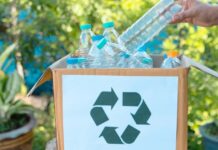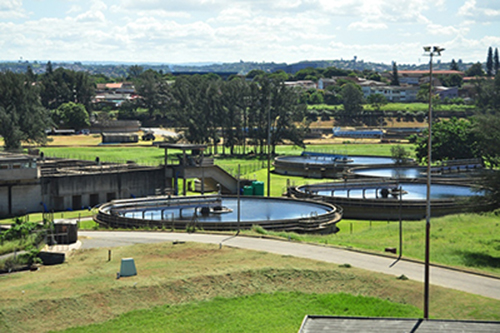ONLY 2,5% of the world’s water is available as freshwater yet demand for this resource grows steadily. Water reuse isn’t a recent innovation (Namibia has been using it for the last 50 years), but it presents an effective remedy to the scarcity of freshwater. Water reuse solutions make more water available whilst enabling preservation of natural water resources. In addition, water reuse controls costs and significantly reduces pollutant discharges – significant benefits for municipality, industry, mining and agriculture. As Antoine Frérot, Veolia Chairman said: “Wastewater can no longer be regarded as waste. Today, only 2% of the wastewater produced in the world is reused. There is a lot of room for improvement!”
Miles Murray, Director of Business Development, Veolia Services Southern Africa, believes that the limited adoption of wastewater reuse solutions in South Africa is to our detriment. “Investment in this sphere is seen as a grudge purchase, so making money available for this is very difficult, both for the municipal market and industrial markets,” he says.
He points to the success of the Durban Water Recycling Plant (DWR), constructed in 2000 and operated and still being maintained by Veolia. This plant has freed up water for 220 000 households in the City of eThekwini, without the need for additional infrastructure spending. At DWR, 47 Ml/day of mixed effluent from the industry as well as domestic wastewater is treated to a very high standard which is then used by large industrial clients. This leaves more drinking water available for consumption and domestic use. City clients benefit from significant cost savings as they pay lower tariffs for this water (compared to those for regular potable water). The high standard of skills development that is enabled by this private sector-operated and maintained plant is also noteworthy.
Another case study in effective wastewater reuse is that of the Windhoek Goreangab Operating Company (WINGOC) – a consortium of Veolia and VA Tech Wabag. The solution yields 21 000m3 of safe drinking water daily – a quarter of the total drinking water consumed in Windhoek, in a water scarce country (only 1% of the 250 mm of rain that falls per annum, infiltrates the groundwater supply). Windhoek is dependent on water supply from boreholes and from dams located far from the city. “To cope with shortages, the city sought alternative solutions to secure reliable water supply and found an answer through wastewater recycling,” explains Murray.
Veolia enables sustainable water resource management
Veolia’s water resource management solutions enable continuous production with the goal of protecting the ecosystem whilst reducing hydric stress impacts. These solutions facilitate the control of all water cycle stages that can meet the many challenges of local authorities and industrial customers: resource management, production and delivery of drinking water and industrial water process such as, collection, treatment and recycling from all sources as well as by-products from its treatment (organic matter, salts, metals, complex molecules and energy). In addition, Veolia offers customer relationship management, as well as the design and construction of treatment and network infrastructure. “All of this expertise allows Veolia to support its customers in the implementation of integrated and sustainable water resource management” , says Murray.
Veolia has over 160 years of experience in water treatment and technology, and is a specialist in optimised resource management with over 350 proprietary solutions. These include digital services that enable smarter management and contribute to the continuous improvement of facilities’ operational performance. The company’s purpose is closely aligned with the UN’s Sustainable Development Goals.















